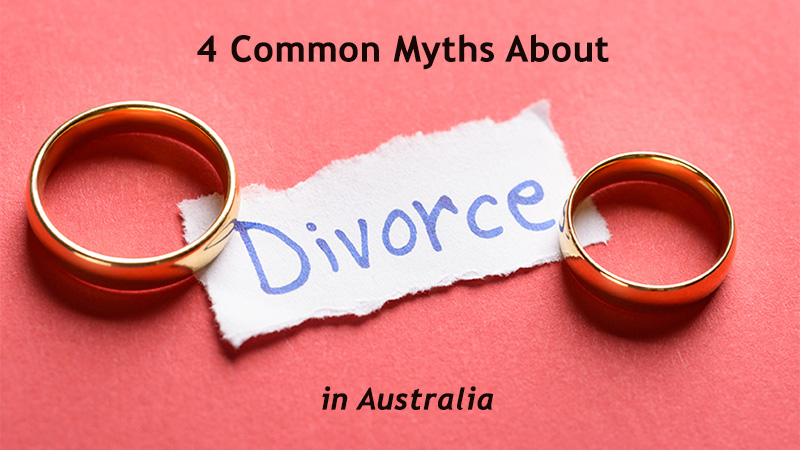4 Common Myths About Divorce in Australia
Divorce isn’t just about the end of a marriage — it can mean the end of a business partnership, the end of a home, and the end of a family. Put all that together with uprooting your lives, possible financial losses and legal battles, and divorce can be life-changing for everyone involved.

Separation and divorce can be a devastating time for spouses as well as their children. There are so many unknowns and oftentimes there is a lot of tension between the partners that are going their own ways.
Most people think that they have a decent amount of knowledge about the divorce process since it has become so commonplace in today’s society. However, unless you have gone through the process yourself it can be hard to tell fact from fiction. Just because you may have a friend or a family member that is divorced doesn’t mean that you know it all.
Each situation is entirely different, and many people end up believing that one set of circumstances is the way that all the procedures are done. If you are in the process of hiring Perth Divorce Lawyers, it is best to have a good understanding about the basics and what to expect. Below we will go through some of the most common myths about divorce in Australia to help you weed through all the misinformation that may be out there.
Myth #1 – “They cheated, so I will get everything.”
If your partner has been unfaithful, this may in fact be the way that you are feeling. Unfortunately, the actual fact is that Australia is a “no fault” divorce jurisdiction. This means that no matter what the moral issues are within the marriage, they will not determine the dividing of any property or money.
Myth #2 – “We will have to split everything 50/50.”
There is actually no rule or law that states that with the dissolvement of a marriage that all assets have to be split evenly. When the divorce is filed, many things are taken into consideration about how to split things up. The court will consider things like what each party originally brought into the union, all the financial and non-financial contributions of both parties during the marriage, and the needs of each party after the divorce.
Myth #3 – “The kids will split their time equally between us.”
Although this would seem like the most fair way to conduct things, it is rarely a workable solution for all parties. The court will consider what is in the best interest of the child, not the parent. Considerations such as physical location, emotional support, financial resources, schooling, career requirements and availability will all be factors in the custody agreement process.
Myth #4 – “I need to agree to the divorce for it to go through.”
In some cases, one party to the divorce may be unwilling to go forward with the process. Although this may be hard emotionally, the legal fact is that both parties do not have to agree to the arrangement for it to be passed through the courts. If you have been separated for 12 months or more, only one person has to make the petition to the courts.
